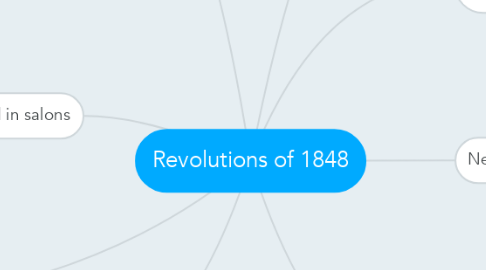Revolutions of 1848
by Oluwatomi Asekun-Masha

1. New literature and ect. were regular topics of discussion in salons
2. Ideas Spread in salons
2.1. By the 1700s some middle class women began holding salons
2.2. Madame geoffrin ran one of the most respected salons in her home on the Rue St. Honore
3. Art literature reflected new ideas
3.1. In the 1600s and 1700s the arts evolved to meet changing tastes
3.2. In the age of Louis XIV, courtly art and architecture was in Greek and roman tradition
3.3. Louis XV and his court led a much less formal lifestyle than Louis XIV
4. The enlightenment composers
4.1. The new enlightenment ideals led to composers and musician to develop new forms of music
4.2. Among the towering musical figures of the era was john Sebastian Bach
4.3. Composer Franz Joseph Haydn was one of the most important figures in development of classical music
5. New Ideas Challenge society
5.1. Enlightenment spreads through many levels of soceity
5.2. During middle ages Europeans soon accepted the rule of divine right
5.3. In the age of reason such thoughts were deemed irrational and unscientfic
6. Writers face censorship
6.1. They believed that God sent down the old order of things
6.2. To protect against the attacks of the enlightenment they waged war on censorship
6.3. To avoid censorship philosophies and writers like Montesquieu and Voltaire sometimes disguised their ideas in work fiction
7. Enlightment despots Embrace new ideas
7.1. The courts of Europe became enlivened as philosophies tried to presuade rulers to adopt their ideas
7.2. Fredrick II exerted extremely tight control over his subjects as his reign as king
7.3. Fredrick openly praised Voltaire's work and invited several of his french intellectuals into Prussia
8. Lives of the majority change slowly
8.1. Most Europeans were untouched by either courtly or middle class culture
8.2. By the late 1700s however radical ideas about equality and social justice seeped in with peasants
8.3. In the 1800s war and political upheaval as well as changing economic conditions would change peasant lives in Europe


